Jade saw drugs kill family and friends - then they took her life too
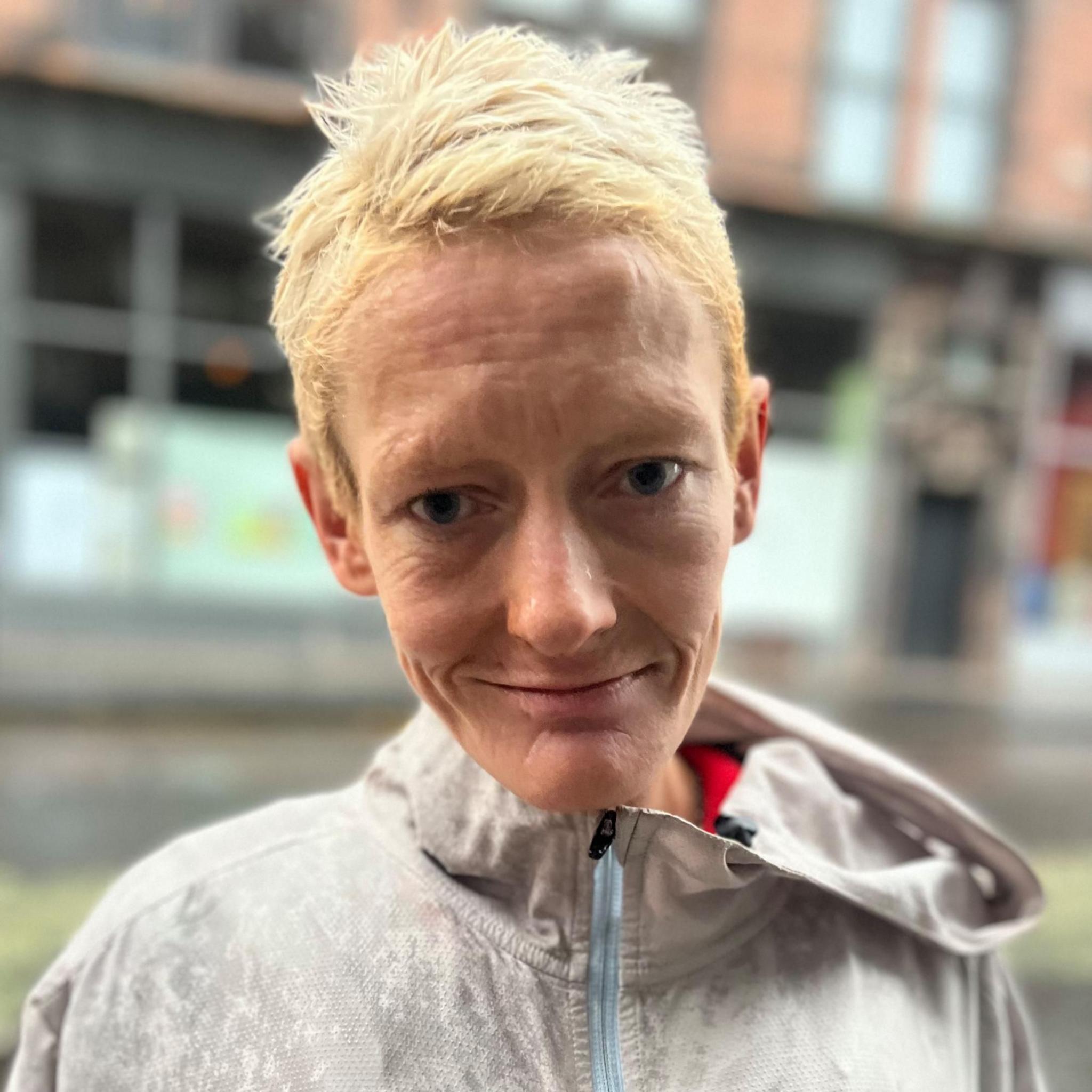
- Published
It is less than a year since we met Jade in Glasgow's Merchant City to hear her story.
She was someone with direct and painful experience of Scotland's horrendous drug death tally – figures which are rising again, external, and remain significantly higher than those in the rest of Europe.
Jade told us she had been using heroin and cocaine for years "as a coping mechanism" to block out trauma from her past.
And she said she knew a lot of people whose lives had been taken by drugs.
"My ex-partner died of drugs. My dad died - he was an addict.
“My sister passed away. A lot of my friends have passed away.
"I've seen too many people dying through drugs," she said.
On 18 March this year, Jade was found dead in a flat in the Gorbals area of Glasgow. She was 34 years old.
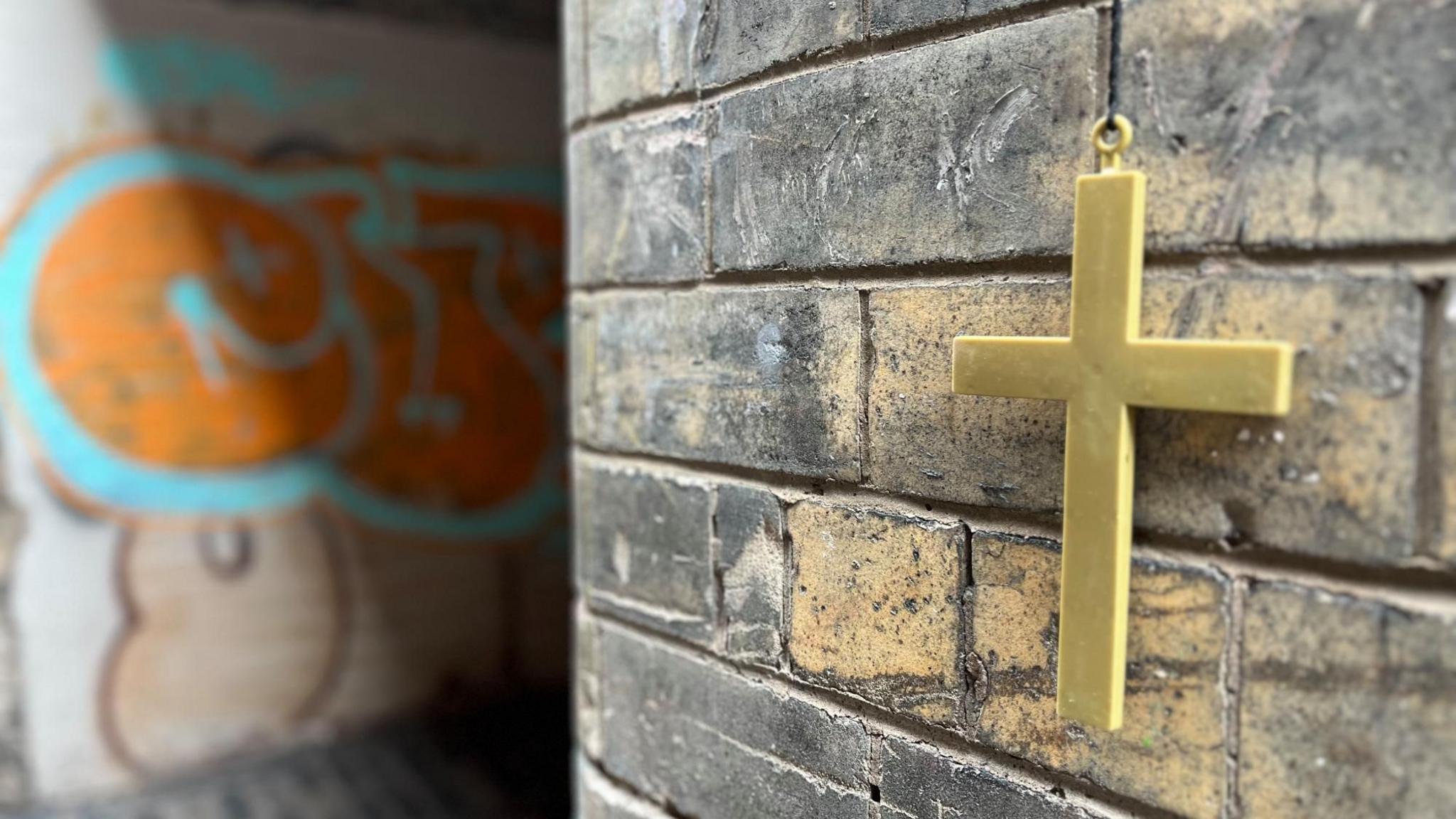
A cross hangs next to an alley in Glasgow city centre where people frequently use illegal drugs
Jade's family did not want to be interviewed on camera but wanted to highlight the work being done to help people with addiction. We have chosen not to use her surname for their privacy.
Jade's relatives praised the drug workers in Glasgow who had helped her time and again.
But when two police officers arrived at the door with news of her death, they said it did not come as a shock.
On the contrary, it was a moment they had both feared and expected for many years.
"We knew it was going to happen," one family member said to us.
After police inquiries concluded, Jade's family were told that her death was drug-related but not a criminal matter.
Drug deaths in Scotland increased in 2023
- Published20 August 2024
Rising concern over new 'zombie' drug in Scotland
- Published19 August 2024
UK's first drug consumption room given go-ahead
- Published27 September 2023
According to the latest official figures men were twice as likely to be the victim of a drug-related death than women last year, after adjusting for age.
But that gap has narrowed since the early 2000s, when men were four or five times more likely to die.
Drugs workers say it can often be harder to help women than men.
Heather Wilkins, gendered services project manager for Dundee Volunteer and Voluntary Action, said that many female drug users used illegal substances as "a coping mechanism" to deal with "complex trauma," such as domestic abuse, rape and sexual abuse.
Ms Wilkins did not know Jade and was not commenting on her case specifically.
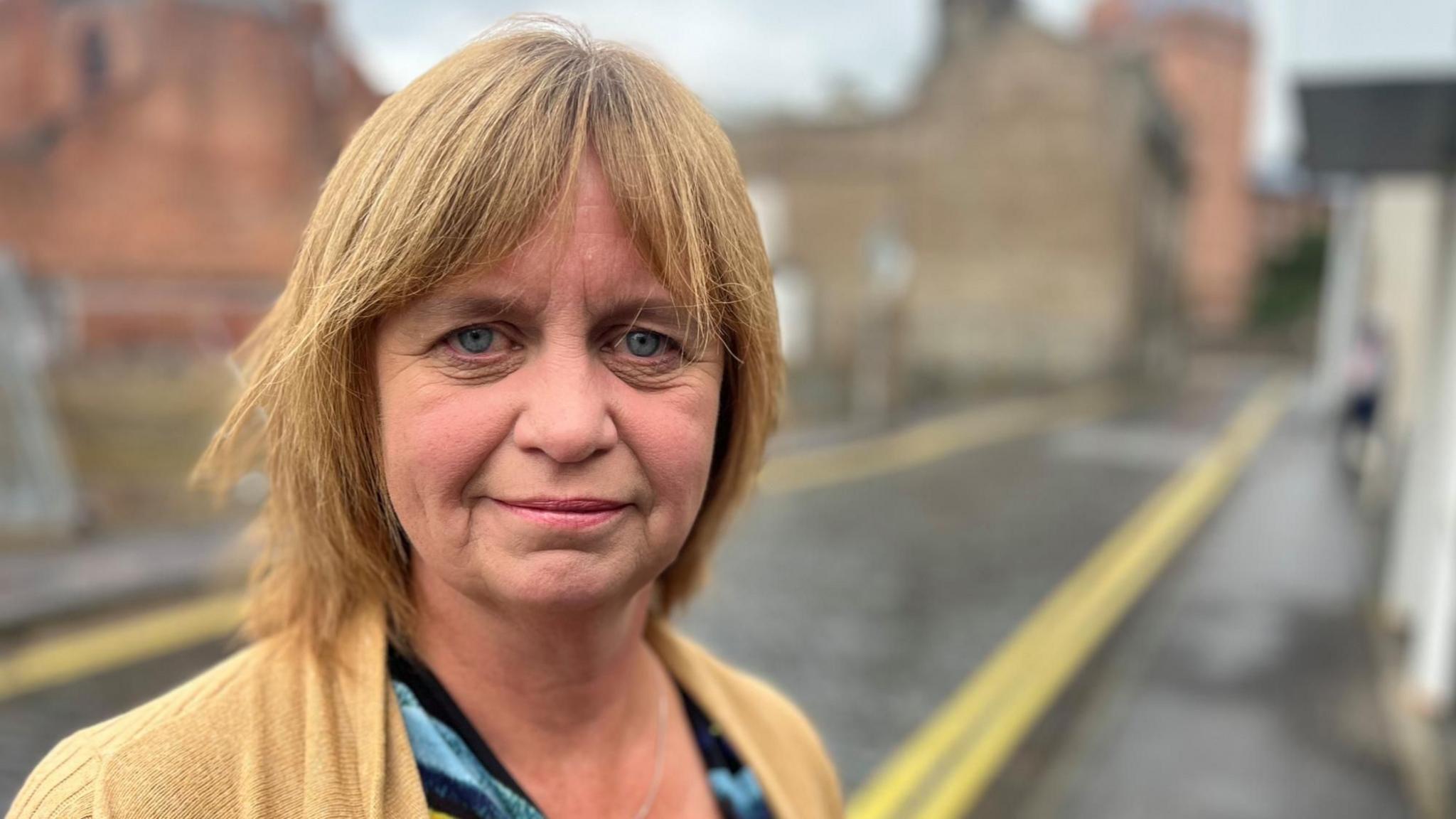
Heather Wilkins believes the Dundee Women's Hub could be a model for other parts of the country
She said women tended to seek help at a later stage than men because of "perceived shame" in doing so, especially if they were mothers with concerns about the potential impact on their children.
Ms Wilkins said they had tried to tackle those issues in Dundee by bringing together organisations dealing with mental health, housing and welfare along with elements of the justice system, psychologists and medical professionals.
She said the resulting Dundee Women's Hub could be a model for other parts of the country in providing comprehensive and sustained support for drug users.
"We've got quite a wide variety of organisations and drug and alcohol services to support the women that are coming through – and you can get all that support in one place," added Ms Wilkins.
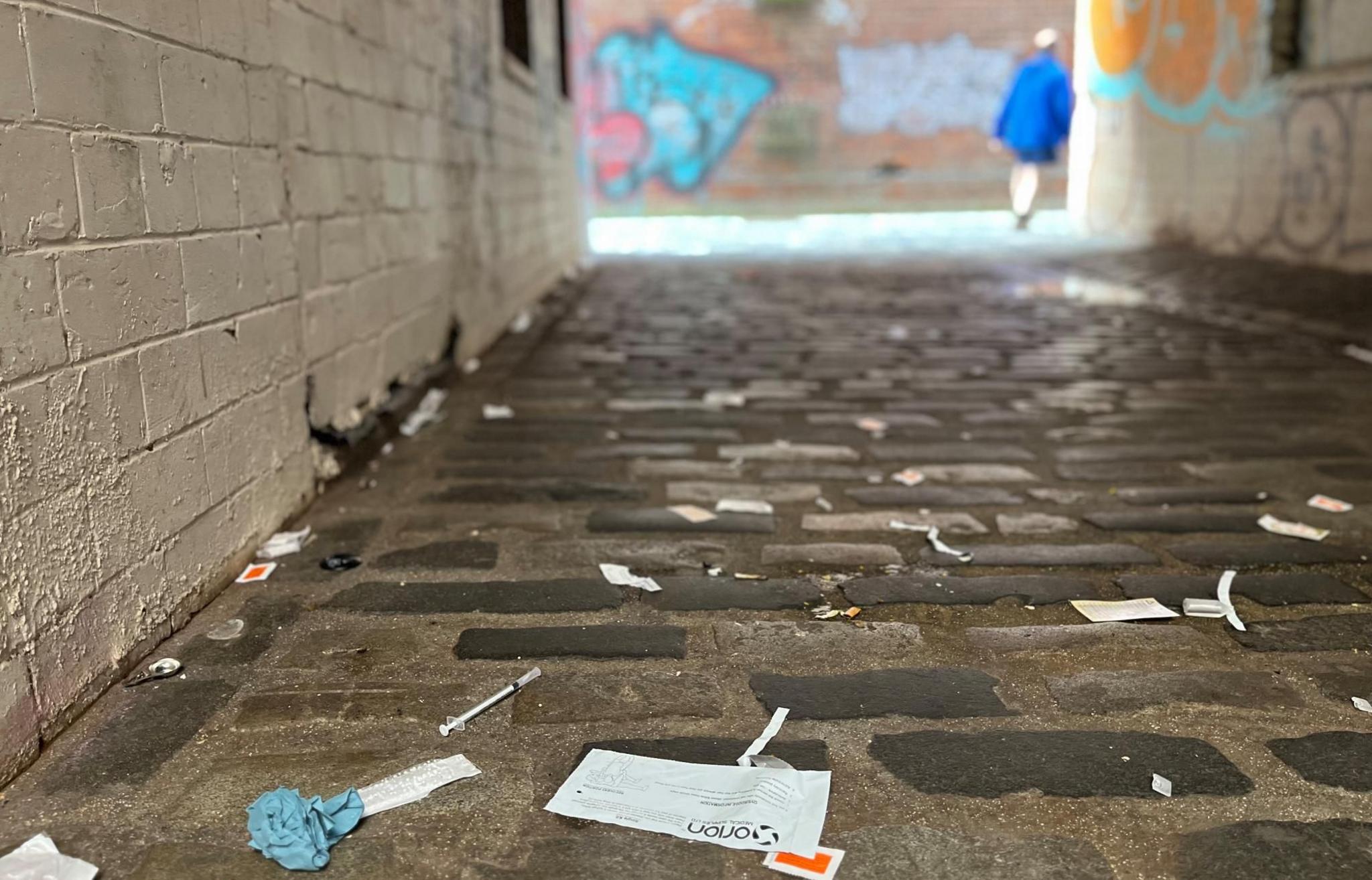
Drug paraphernalia litters a street near Glasgow city centre
Dundee is also hoping to pilot another idea which could potentially save lives – a drug-checking pilot which would allow users to submit a drug sample for testing to identify the substance or substances they were planning to take.
Danny Kelly is from Hillcrest Futures, the charity which submitted the application to the Home Office.
He said that, if approved, "it gives us accurate information on what people are using and what's used across the community and, by having that, it means that we could give targeted harm reduction information".
Two other cities are also applying for a drugs testing licence, Aberdeen and Glasgow.
In Glasgow, it would be based at an official consumption room for illegal drugs, including heroin and cocaine, which is under construction at a health centre in the east end of the city.
The project, a UK first, is running a few months behind schedule and is due to open on 21 October.
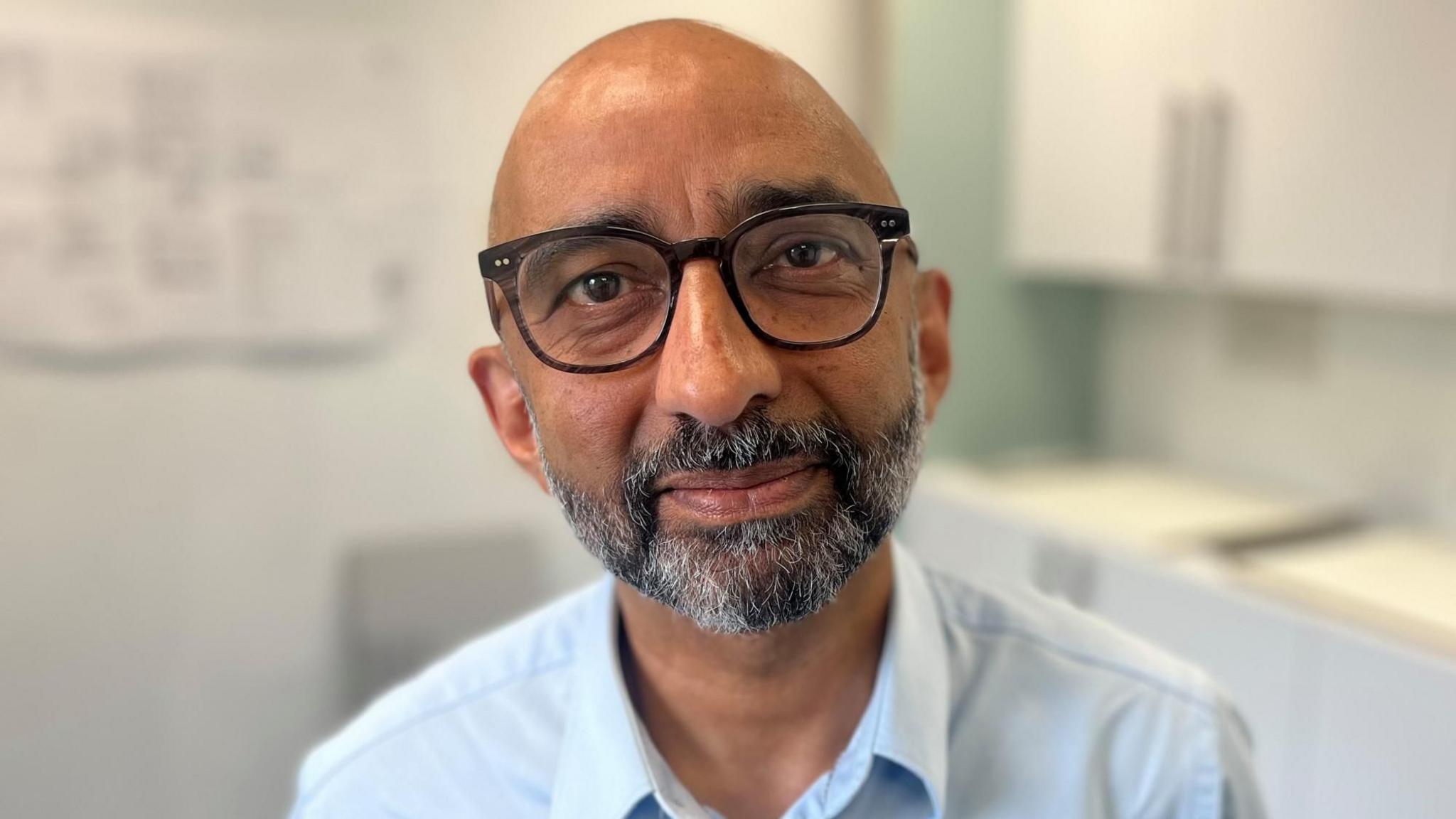
Dr Saket Priyadarshi is the associate medical director of Glasgow alcohol and drug recovery services
Dr Saket Priyadarshi, who is in charge of the pilot project, told us that 2023 had been another difficult year for drug use in Glasgow.
"The drug market has never been as toxic and as volatile as it is at the moment," said Dr Priyadarshi, the associate medical director of Glasgow alcohol and drug recovery services.
He said there had been "a very significant change" in the drug trends and drug use patterns in the city.
"People who inject drugs in Glasgow city centre, for example, are just as likely to be injecting cocaine as they are heroin," he explained.
"We need to be investing heavily in all evidence-based interventions and innovations in our drug services and treatment care services across Scotland."
When we interviewed her last September, Jade had been enthusiastic about plans for the consumption room and drug treatment centre.
It was a “brilliant idea,” she said, and "would save a lot of people's lives".